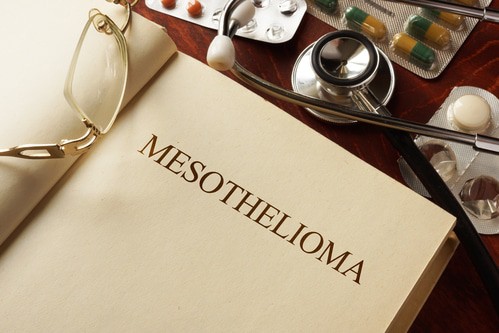Why Is Mesothelioma So Deadly?
June 5, 2023
Mesothelioma is a rare, aggressive cancer with an average life expectancy of about 18 months, according to the latest findings. In fact, only about 1 in 10 patients will survive 5 years after a mesothelioma diagnosis.
That’s one reason why mesothelioma is one the deadliest forms of cancer — but it’s not the only one.
4 Reasons Mesothelioma Is So Deadly
Mesothelioma is notoriously difficult to diagnose and treat, with many patients developing this cancer decades after they were initially exposed to asbestos. Regardless of how (or how long) asbestos exposure occurred, the resulting mesothelioma cases will generally be marked by the following characteristics, all of which contribute to the condition’s highly lethal nature.
 1. Mesothelioma is incurable.
1. Mesothelioma is incurable.
Like other forms of cancers, mesothelioma is a complex condition that currently has no cure. Complicating things, mesothelioma can be caused by various factors, with different exposures — including different levels and types of exposure — potentially damaging cells and giving rise to mesothelioma-causing mutations.
While there can be several ways to treat this form of cancer and limit the risk of it spreading (metastasizing), no cure for mesothelioma exists to date. Nevertheless, treatments are advancing in this area, and one of the latest innovations has focused on individualized therapies to treat mesothelioma.
2. Early-stage mesothelioma tends to have minimal symptoms.
Stage 1 mesothelioma can be asymptomatic for some patients, with no symptoms marking the initial development of the condition. When symptoms do start to appear, they tend to be generic, mild, and easy to mistake for other conditions, like (but not limited to):
- Asthma
- Bronchitis
- Chronic obstructive pulmonary disorder (COPD)
- Pneumonia
Notably, that can mean that early-stage mesothelioma is subject to misdiagnoses. Some experts have estimated that up to 4 in every 5 patients are misdiagnosed at least once when they have Stage 1 mesothelioma.
 3. Most mesothelioma diagnoses occur in later stages.
3. Most mesothelioma diagnoses occur in later stages.
Stage 3 is when most mesothelioma diagnoses occur. That’s because Stage 3 is when mesothelioma has usually become distinct enough to:
- Display more definitive and/or more serious symptoms
- Detect through imaging tests and other diagnostic tests
At this stage and beyond, however, mesothelioma tends to have a higher risk of spreading. Once that happens, mesothelioma can be far more difficult to treat than cases in which the condition is localized to one area of the body.
4. Mesothelioma rarely goes into remission.
Mesothelioma remission is generally defined as reduced tumors and symptoms for at least one month. Though possible, mesothelioma remission is rare, with some experts ballparking the chances of remission at roughly 7 to 12%, depending on the type of mesothelioma involved, the stage of the condition, and other factors.
5 Ways to Improve the Chances of Surviving Mesothelioma
Mesothelioma patients are not without options or resources once they receive a diagnosis. Despite being a deadly and serious form of cancer, mesothelioma can be treated with medical interventions and lifestyle changes.

- Enjoying a better quality of life
- Improving the prognosis and life expectancy
- Slowing the progression of mesothelioma before it advances to later stages
To do that, here are a handful of tips that experts recommend following if you or a loved one works with asbestos and/or has been diagnosed with mesothelioma:
- Know the risk factors and symptoms of mesothelioma: If you or a loved one has been exposed to asbestos at work, at home, or elsewhere, get familiar with the symptoms of mesothelioma, so you know when to seek treatment. Although early-stage symptoms can be generic, they aren’t invisible. If you’re aware of what those symptoms could look like, you could take action to get an earlier screening and/or diagnosis. And that could mean better prognoses and/or more available treatment options.
- Follow through with all prescribed medical treatments: Without treatments, mesothelioma can grow and spread unchecked. Don’t let that happen by putting off medical treatments. Given how aggressive mesothelioma is, taking an aggressive approach with treatment can lead to better outcomes. Depending on the condition, treatment options can include surgery, radiation, and/or chemotherapy.
- Stop smoking: To date, studies have yet to identify smoking as a cause of mesothelioma. Still, smoking does not help mesothelioma patients, and some research suggests that quitting smoking can reduce the risk of lung cancer in those exposed to higher levels of asbestos.
- Know and use your support system: Family, friends, a therapist, and/or a group can offer essential support as you face a new reality with mesothelioma. In fact, this condition can do much more than damage the lungs and cause malignancies; it can also spur devastating psychological trauma, like severe depression. Having a strong support system can help you get through the toughest times while possibly giving you access to new tools and resources for dealing with life’s challenges ahead.
- Consider alternative treatments: The care and interventions prescribed by doctors, surgeons, and other medical professionals may do a lot to treat mesothelioma, but those aren’t the only options out there. You could also pursue “alternative” care in the form of massage therapy, acupuncture, clinical trials, and more. These options may help reduce your symptoms and improve your quality of life.
What to Do After a Mesothelioma Diagnosis
Your world can feel like it’s been turned upside down after you or a loved one has been diagnosed with mesothelioma. As shocking as that can be, you don’t have to (or want to) wait to take action and get help.

In fact, while your medical team can connect you with specialists who can provide more advanced treatments and medical care, a mesothelioma attorney can share more about the legal options for recovering compensation and seeking justice.
The truth is that mesothelioma is often the result of asbestos exposure that could have been prevented or mitigated if not for some type of negligence, carelessness, or preventable oversight.
By talking to a mesothelioma lawyer, you can get more answers and information about the next steps, how mesothelioma claims work, and what to expect in terms of a settlement. That could be the key to covering essential medical care and securing some form of justice.

 1. Mesothelioma is incurable.
1. Mesothelioma is incurable. 3. Most mesothelioma diagnoses occur in later stages.
3. Most mesothelioma diagnoses occur in later stages.